This morning, The New York Times published a compelling piece by Alex Williams called “Can Parents ‘Robot-Proof’ Their Child’s Job Future?”
In the article, Williams runs through a daunting list of all of the jobs being replaced by AI today, right now, while your child is at school learning how to memorize rote facts and enter data into circles via No. 2 pencil, a task that could easily be undertaken by a simple, early 20th century proto-computer, allowing your child a few extra minutes on the playground to chase butterflies and make up silly songs about underpants.
That sort of rote call and response learning was sufficient for the Industrial era, when factory workers had to memorize one function and perform it over and over and over again for thirty years, but the majority of those jobs were made obsolete by machines fifty years ago. Today, even the irreplaceable elite – the surgeons and the lawyers, the journalists and even the actors – are being usurped by algorithms, mechanical arms, and CGI.
The article raises the legitimate question: how can we robot-proof our kids’ future jobs? But the answers rely on the same sort of thinking that’s kept millions of Americans helpless and despondent in the 21st century’s constantly changing landscape.
Find a job that AI can’t replace. Find that one line of work that only a human can do.
Do you see the problem with that?
First, it’s only a matter of time before AI are advanced enough to replace all the jobs.
Second, even if there were one or two professions that were absolutely dependent on flawed human thinking – say, politicians – talk about a job shortage.
Another solution is to adopt a UBI, or Universal Basic Income, so that no one has to work. The machines can do the labor; we can do what we want.
I love that solution, but it relies on universal human generosity and cooperation, which seems like wishful thinking in the current climate.
What does all this have to do with the Sea Shanti?
Everything. Well, that’s overselling it a bit. But definitely a lot.
There’s no job that my son can learn that will secure him against hardship. There’s no one skill that will ensure he has a steady paycheck.
The most valuable lessons that my child can learn have to do with learning and living. The skills that he needs to master in a world where jobs are scarce and the landscape is constantly changing are adaptability, endurance, and pragmatism.
Do you know what kids aren’t taught in schools? The list is endless. They’re not taught to prepare a meal for themselves or what to do when they have a cold. They’re not taught how to pivot when the job they’ve been doing for fifteen years becomes obsolete. They’re not taught how to navigate the world, to predict sea changes, to solve the problem facing them right now, in this moment. They’re not taught how to thrive when everyone else is barely surviving. They’re not even taught how to survive.
One of the things that I love the most about the Sea Shanti and our decision to disrupt our comfortable, convenient lives is the vision I have of Fain, freed from backward-thinking curriculum. When this Fain steps out into the world as a young man with four years of sailing under his belt, he’ll be capable of thriving – regardless of the evolution of AI.
This Fain will know how to read a map and plot a course. He’ll know how to feed himself without a grocery store or a paycheck, just by spending the day fishing. He’ll know how to repair an engine and keep his cabin shipshape. He’ll know how to read the environment and how to respond when storms are brewing. He’ll know how to harness solar and wind power, and he’ll know how to harvest rain water to keep his tanks full.
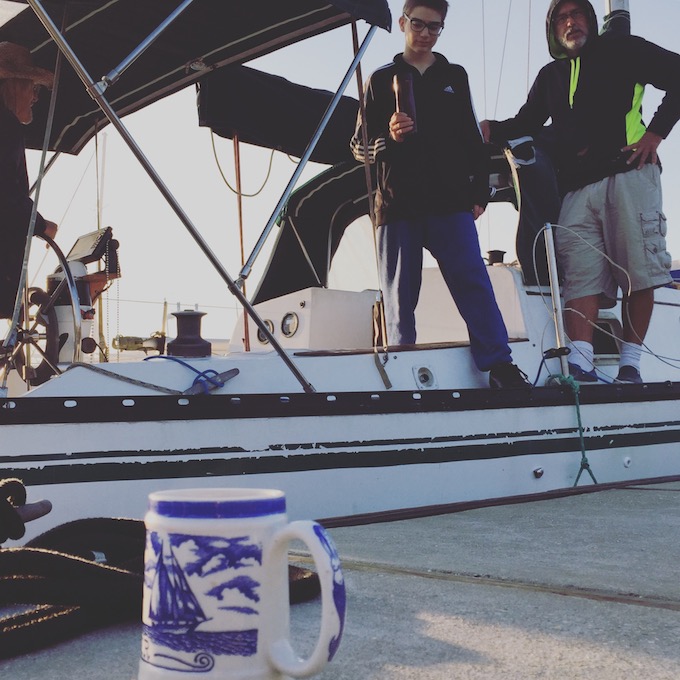
He won’t rely on a steady job that could lay him off tomorrow or a UBI that’s dependent on an idealized and yet unrealized people’s government. He’ll know how to build a website, but he’ll also know how to build a cabinet and fix a leaky faucet. He’ll know how to pick up a hammer and find a job on a construction site or pick up an instrument and busk on a city street.
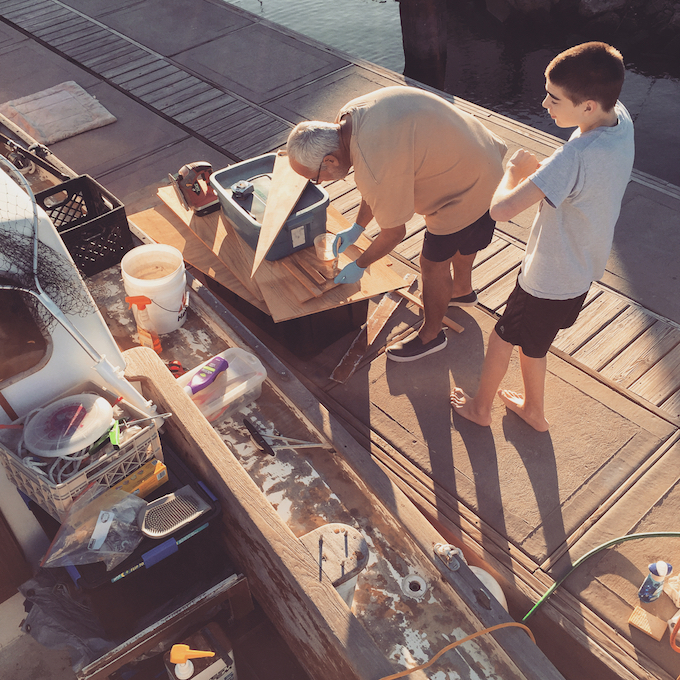
He’ll know how to make friends in foreign lands and how to make himself useful. He’ll be confident in his own abilities, and he’ll be engaged in the world. He’ll pay attention, and he’ll learn new things on a daily basis, not because it’s on a test, but because it’s in the world to learn and he’ll have absolutely nothing better to do with his time than become a better version of himself.
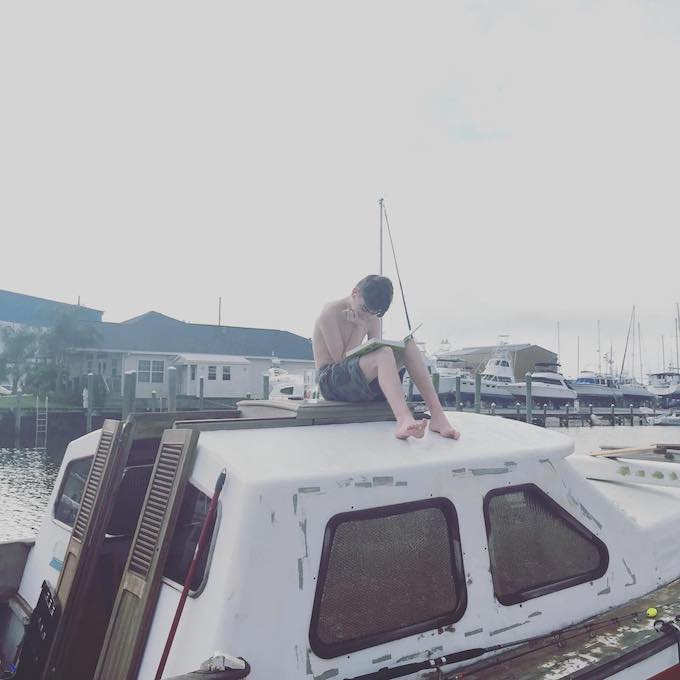
He’ll be resilient. He’ll be resourceful. He’ll be independent. He’ll be nurturing. He’ll be occupied daily in becoming fully himself.
Because that is the only occupation that cannot be replaced by a robot.



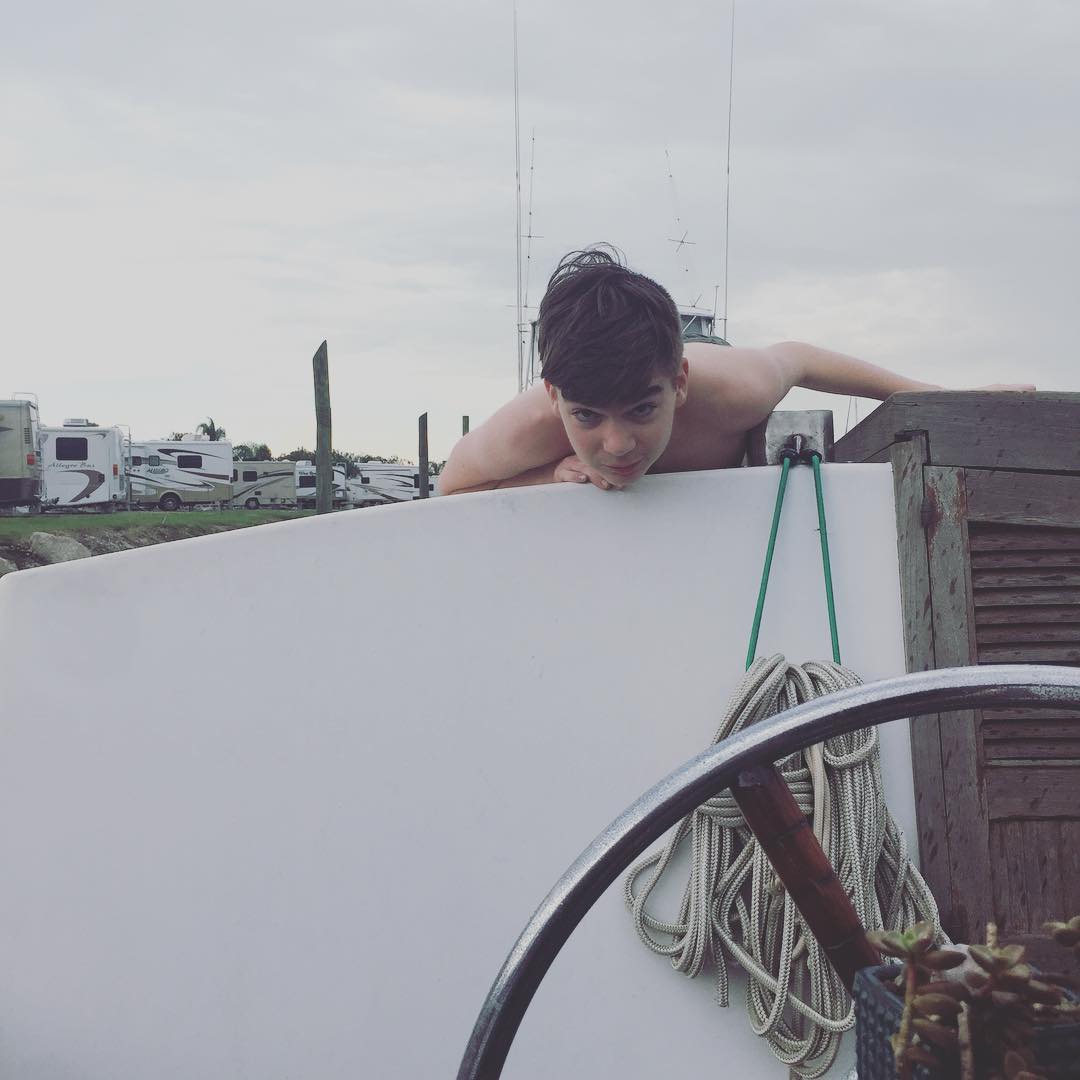
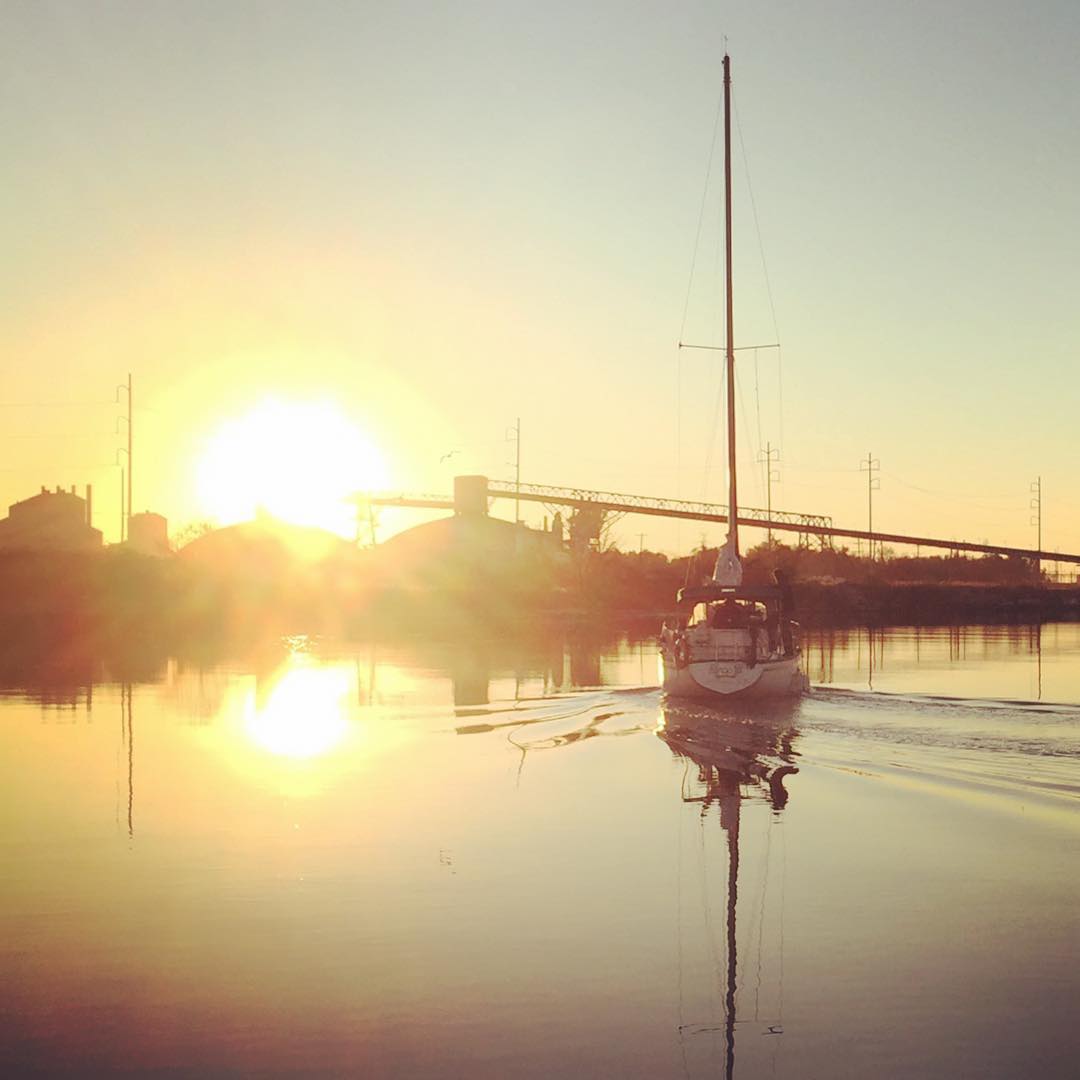

You make me want to sell all my stuff and move my kids on a boat.
But then I remember that I have horrible sea sickness.
So now I have to figure out how to teach my kids these skills on land.
I’d say: start in the kitchen. The skills that are most neglected by our schools are the skills that are most necessary for living. Once upon a time, people learned those skills from parents and grandparents, but not so much anymore. I suspect because it’s not necessary anymore. We can get food from McDonald’s. We don’t have to make our clothes or grow our herbs. And since we don’t have to – and since we have a hundred other things that we feel we do have to do instead – we let those old skills go by the wayside. I sat down when we decided to live aboard and made a list of the qualities and skills that I thought an adult should have to thrive in any environment. I’d recommend it to anyone. I think too often we assume that whatever is being taught is what kids need to know. But it ain’t necessarily so.
What’s on your list? I think that would be a great upcoming post.
Great idea, Katie! Thanks! Critical thinking and problem-solving are two skills at the top of the list, but so is nurturing: cooking, cleaning, recognizing symptoms of injury, sickness, and even mental wear and tear, comforting, et al. I want to know that Fain will be able to care for himself and for others when he gets older. Those under-represented skills are the very ones needed to thrive when the going gets tough, y’know?
Sounds like a pirates life for sure. What do you think Neaubeard?
You know it! Neaubeard says, “Argh!”